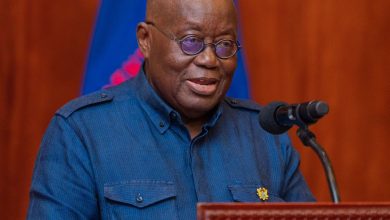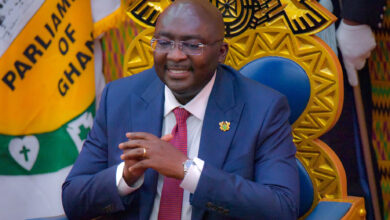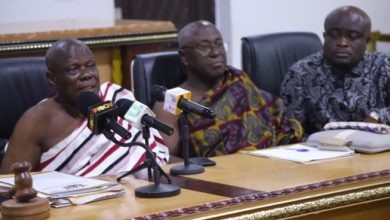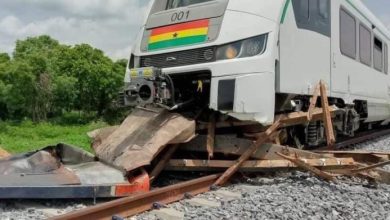Akufo-Addo: Payment of slavery reparations to Africa long overdue
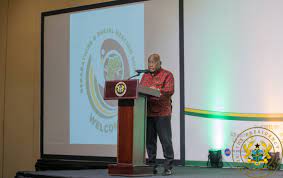
President Akufo-Addo has said the payment of reparations to over 20 million Africans whose freedoms where curtailed and sold into slavery during the Trans-Atlantic slave trade is long overdue.
According to Akufo-Addo, even persons in countries such as the United Kingdom who owned slaves, received reparations but those who were enslaved, did not receive any payments at all.
To this end, President Akufo-Addo, said it is time to intensify discussions about reparations for Africans who were affected by slave trade.
Addressing participants of the Advancing Justice: Reparations and Radical Healing Summit, in Accra and funded by MacArthur Foundation, on Monday (1 August), President Akufo-Addo said, “the effects of the slave trade have been devastating on the continent and the African diaspora” and that the entire period of slavery meant that Africa’s “progress; economically, culturally and psychologically, was stifled”.

“There are legions of stories of families who were torn apart. You cannot quantify the effects of such tragedies, but they need to be recognized. African, her people, lost out tremendously in that period and its ripple effects are still being felt right to this very day. Reparations for African and the African diaspora are long overdue,” Akufo-Addo said.
Bias against Africa
“Predictably, the question of reparation becomes a debate only when it comes to Africa and the Africans.
“When the British ended slavery, all the owners of enslaved Africans received reparation up to the tune of 20 million pounds sterling, the equivalent today of 20 billion pounds sterling, but enslaved Africans themselves, did not receive a penny”.
Furthermore, the President indicated that; “likewise, in the United States, owners of slaves received 300 dollars for every slave they owed. The slaves themselves received nothing”.
“Take the case of Haiti, which had to pay reparations amounting to 21 billion United States dollars for French slave owners in 1825 for the victory of the great Haitian revolution, the first in the Americas and the Caribbean which freed the slaves. It was a payment made under duress that impoverished Haiti throughout the 19th century till today”.

“Native American have received and continue to receive reparations. Japanese American families who were incarcerated in internment camps in America during World War II, received reparations. Jewish people, six million of whom perished in the concentration camps of Hitler’s Germany, received reparations, including homeland grants and support,” the President said.
“So it is time for Africa, 20 million of who’s sons and daughters had their freedoms curtailed and sold into slavery also to receive reparation”.
“No amount of money can restore the damaged caused by the Trans-Atlantic slave trade and its consequences which have spanned many centuries”.
“But nevertheless, it is now time to revive and intensify the discussions about reparations for Africa. Indeed, the time is long overdue,” President Akufo-Addo added.
The summit
The summit in Accra is being held to discuss and examine options for addressing the reparation intervention gaps in the world.
Organizers believe that existing interventions are half-hearted, the campaigns appear uncoordinated and there seems to be a lack of a comprehensive strategy and agenda for reparations.
Additionally, the Accra summit will seek to create a platform for the unification of a transcontinental plan for reparations.
It will also provide an opportunity for various actors on the continent and from the Diaspora to commit to redefining strategy, build bridges and engender trust in the global campaign.
The summit will also explore healing approaches from the continent as well as begin a dialogue process that will unpack the role of Africans in the slave trade.
It will also offer an avenue for defining and agreeing on areas of collective advocacy and will introduce new approaches for racial communal healing and critical reflections to address various harms suffered.
Thematic areas
The thematic areas that would be discussed at the plenary include; “Reparatory Justice and Healing Reflections for the need to acknowledge collective responsibility for advancing reparative justice and healing”.
The second is “Reparations Legislation in the United States, Barbados, and elsewhere, drawing lessons from HR40 and its status and how the global fight for reparations can help elevate the issues in the US, Caribbean, and elsewhere”.
Thirdly, “Storytelling and re – education – utilizing critical African tools to facilitate individual and collective healing from intergenerational and other forms of trauma”.
Attendees will also take “stock of the status of reparations, focusing on what is the status of the reparations movement in Africa and their legacies”.


